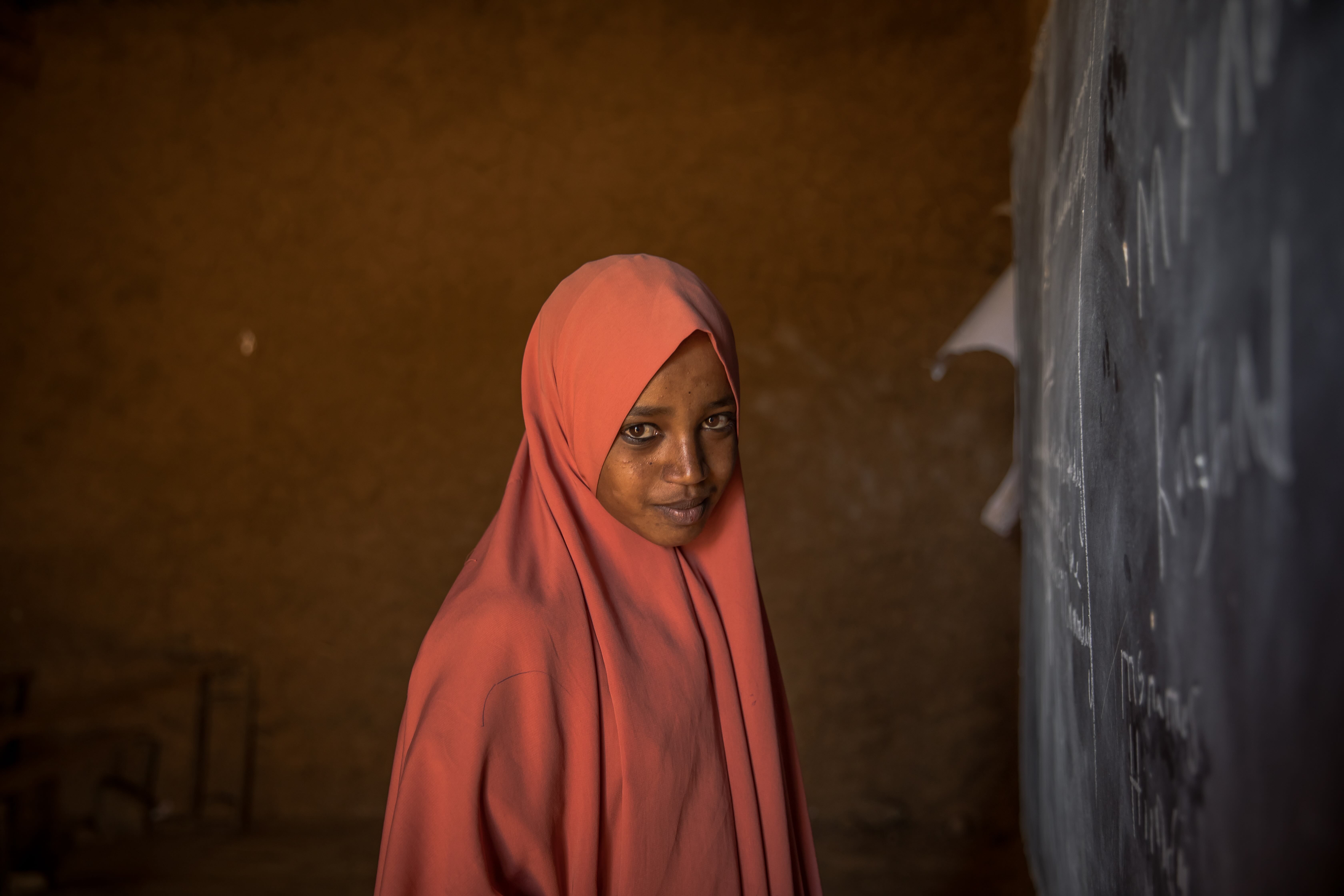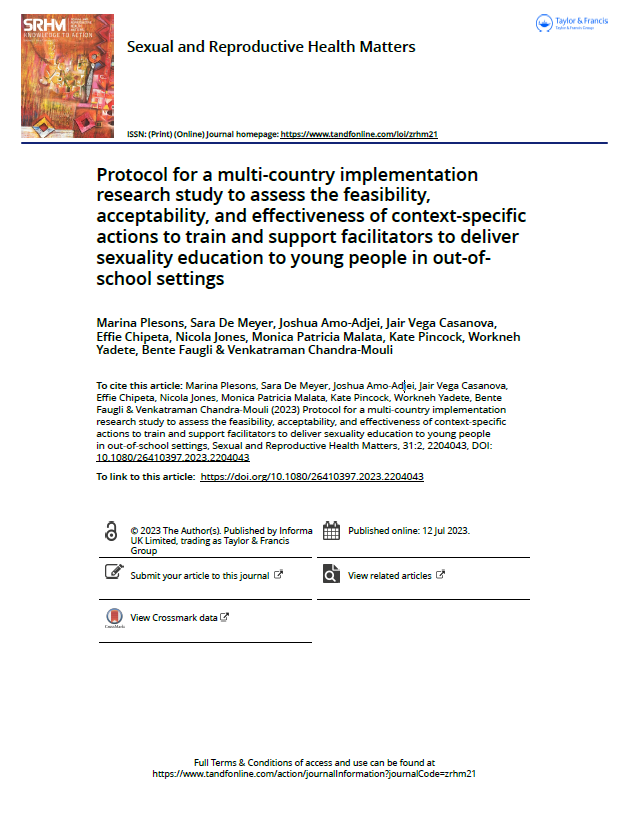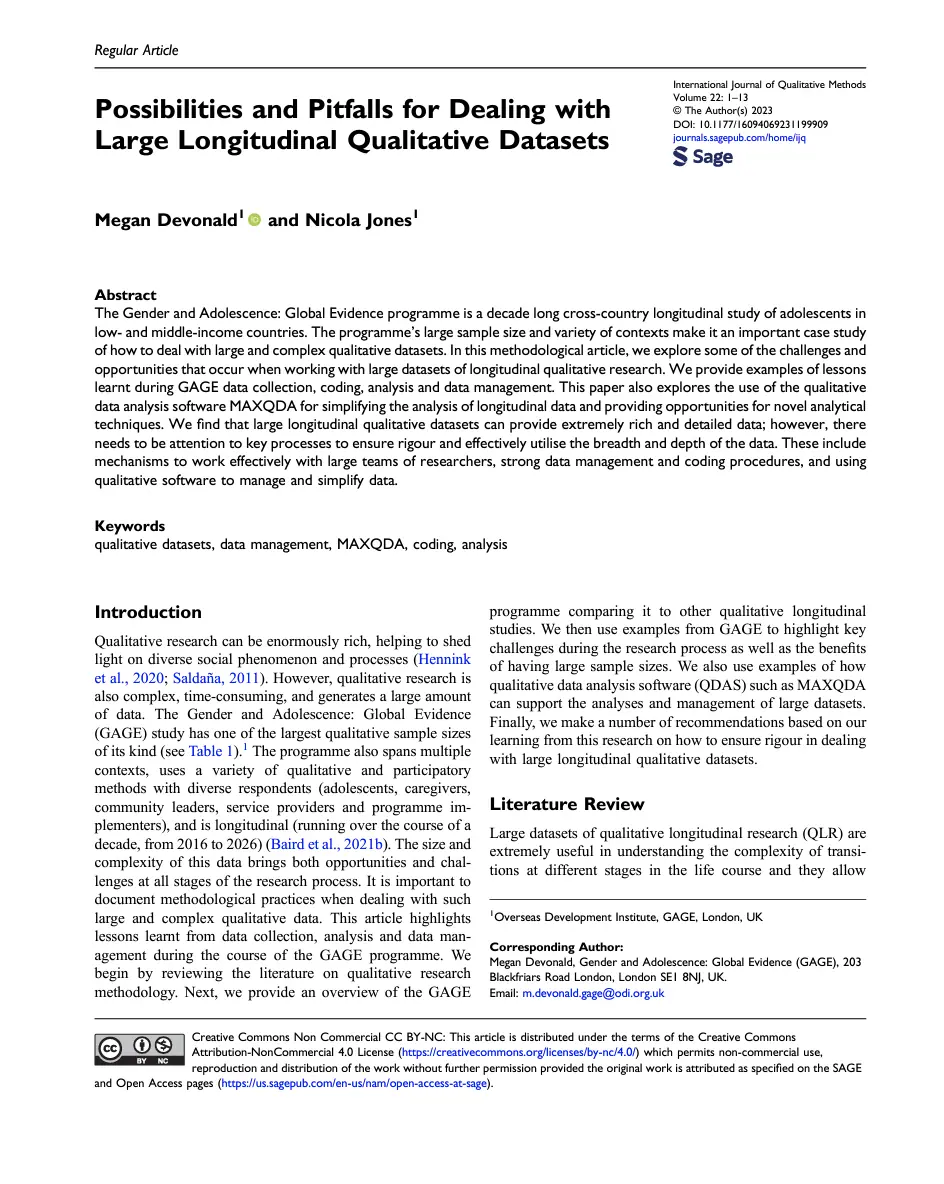
What does it Take to Train and Support Facilitators to Deliver CSE Effectively in Out-of-School Settings for Young People With Particular Needs and Circumstances? Lessons Learned From a Multi-Country Implementation Research Study
publication
What does it Take to Train and Support Facilitators to Deliver CSE Effectively in Out-of-School Settings for Young People With Particular Needs and Circumstances? Lessons Learned From a Multi-Country Implementation Research Study
02.12.2024 | Cross-Country
Country
Cross-Country
Capability domains
Education and learning
Audience type
Researcher
Year of publication
2024
Authors
Marina Plesons, Venkatraman Chandra-Mouli, Jair Vega Casanova, Karen Adrians Pacheco, Camilo Pérez Quintero, Kristine Bjartnes, Monica Malata, Medrina Mtende, Effie Chipeta, Patani Mhango, Wonder Agbemavi, Joshua Amo-Adjei, Nicola Jones, Workneh Yadete, Kate Pincock, Natalia Buitrago Rovira, Sara De Meyer
Historically, most of the focus on comprehensive sexuality education (CSE) has been on expanding the availability and quality of in-school programs to reach large numbers of young people with information they need to grow and develop in good health. This study examined the feasibility, acceptability, and effectiveness of actions to train and support facilitators to delivery CSE in out-of-school settings for young people with particular needs and circumstances in four countries.
Specifically, these groups included young migrants and their host community in Colombia, young people with disabilities (YPWD) and young people involved in sex work in Ethiopia, young people in detention and young people living with HIV (YPLHIV) in Ghana, and YPWD and YPLHIV in Malawi.
Suggested citation:
Plesons, M., De Meyer, S., Chandra-Mouli, V., Casanova, J.V., Pahecho, K.A., Quintero, C. P., … and Zhukov, I. (2024) ‘ What does it Take to Train and Support Facilitators to Deliver CSE Effectively in Out-of-School Settings for Young People With Particular Needs and Circumstances? Lessons Learned From a Multi-Country Implementation Research Study’ Journal of Adolescent Health 74(3): 44 (10.1016/j.jadohealth.2023.11.280)


